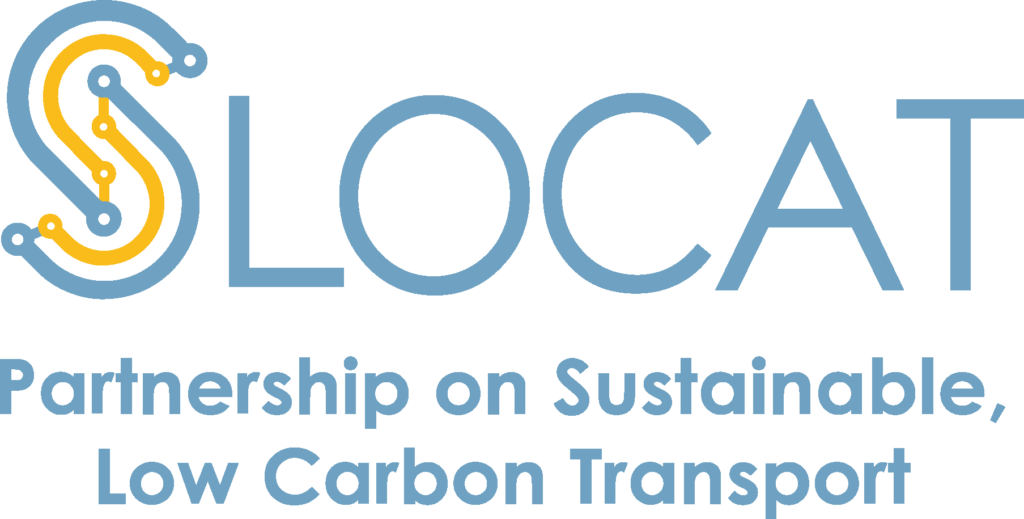Transport Decarbonisation Index



Explore the TDI reports, tools and guidance
The Transport Decarbonisation Index (TDI) offers Low- and Middle-Income Countries (LMICs) a clear, data-driven overview of where they stand in their transition towards a sustainable, low-carbon transport sector. It enables policymakers to identify their strengths and areas needing improvement, benchmark long-term progress towards GHG emission reduction targets, compare performance against other countries, as well as support the development of NDCs.
The TDI project is part of the High Volume Transport (HVT) research programme funded by UK Aid from the Foreign, Commonwealth & Development Office (FCDO). The project is implemented by the HVT consortium partners: SLOCAT, Urban Electric Mobility Initiative (UEMI) and experts Lewis Fulton, Pierpaolo Cazzola and Jacob Teter.
Why do We Need the TDI?
Informing policy and financing decisions through transport assessments .
Limited data hinders policymakers from effectively tracing transport decarbonisation pathways aligned with net zero emissions or making informed decisions about policy actions to prioritise. These aspects are at the forefront of the Transport Decarbonisation Index (TDI) project which through its diagnostic toolkit seeks to support policymakers in LMICs across Sub-Saharan Africa and South Asia in their efforts to reduce emissions from surface transport while advancing broader sustainable development objectives.
By delivering a data-driven overview of where countries stand in their journey towards net zero GHG emissions and complementing it with tailored, yet non-prescriptive policy advice, the TDI can enable evidence-based, time-sensitive and targeted decisions on surface transport decarbonisation.
Importantly, the TDI is designed not as a tool for casting blame or shaming countries with lower scores but as a platform for mutual learning, collaboration and inspiration. The TDI can unlock a virtual circle for policymakers and act as an important support tool, among other policy and financing instruments, by supporting them in 1) addressing knowledge and capacity gaps, 2) building investor trust through transparency, 3) strengthening partnerships with financial and development institutions, 4) mobilising financial and technical support, 5) devising impactful policies for sustainable, low-carbon transport, 6) fast-tracking progress towards net zero emissions by 2050 by benchmarking against global pathways aligning to sustainability and decarbonisation goals, and 7) improving public awareness and engagement. These activities can help foster alignment with global agendas, including the Paris Agreement and the 2030 Agenda for Sustainable Development.
To exploit the TDI’s full potential and realise all of its benefits, however, the dissemination of the index’s scoring results would have to be tailored to the needs, knowledge and data literacy of its target audience. This will be crucial to ensuring the information is not only accessible but also actionable for all intended user groups.
Despite prioritising indicators with good data coverage across the piloted countries and relying on globally recognised databases with harmonised collection processes and annual updates, the TDI’s application and benchmarking across 12 pilot countries encountered significant data limitations, with only one-third of the identified indicators being backed with sufficient representation. Besides providing valuable insights into the type of data that needs to be captured, the TDI’s application has also underscored the need for improvements in data collection and availability in LMICs, with regional efforts in data analysis holding significant potential to improve assessment and policy-making in transport.
A call to action for data collection and analysis in transport
Data is central to providing a comprehensive picture of the status of sustainable low-carbon transport and paramount to informing both policy and investment decisions. During these shifting times, advancing data and policy collection and interpretation capacities will be crucial to better track progress and the challenges that must be addressed.
As highlighted in the TDI project, obtaining regular, reliable and public data across regions and transport modes remains an outstanding issue. When an increasing number of stakeholders are involved in collecting data and policy information, more and better open access data and capacity-building efforts for data interpretation can be supported by multi-stakeholder partnerships in the sustainable, low-carbon domain. The establishment of accessible, centralised and regularly updated transport data stands to boost efficiency and transparency for informed decision-making.